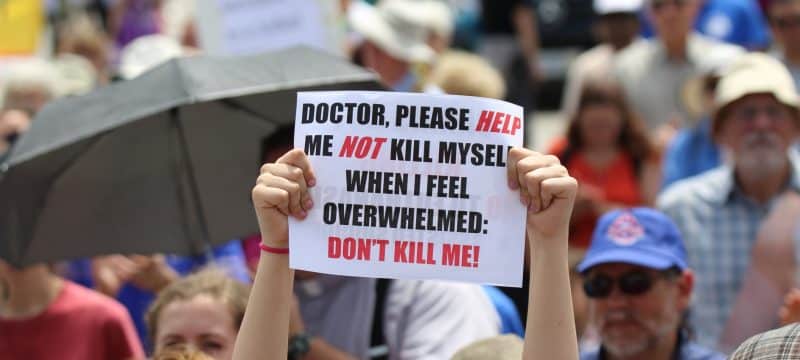Objections are being raised, and opposition mobilised, against David Seymour’s Ending of Life Choice Bill which was drawn from a private members’ bills ballot at Parliament on June 8.
Nathaniel Centre director Dr John Kleinsman noted submissions to the Health Select Committee’s Ending One’s Life in NZ Inquiry clearly showed the public’s opinion on the issue.
“The people of New Zealand have recently spoken out on the question of legalising euthanasia in unprecedented numbers and they have overwhelmingly rejected any such move as too dangerous by a measure of 4 to 1,” said Dr Kleinsman.
“This is the real measure of people’s views on the topic and it is paramount that these views inform politicians’ understanding going forward.”
Mr Kleinsman warned that if the bill became law, there would be serious unintended consequences, in that many people would actually have their choice and control eroded. He said the bill would encompass more people than is popularly thought.
“[It] opens up assisted suicide and euthanasia to anyone 18 years and over with a grievous and irremediable physical or mental condition, which in their own view makes their life unbearable”, he said.
“This bill is not designed just for a small number of very seriously ill people nearing the closing stages of their lives, but will encompass large numbers of sick or disabled people living, what most would consider, near normal lives, young and old alike. It’s a recipe for euthanasia on demand.”
Auckland Bishop Patrick Dunn, president of the NZ Catholic Bishops Conference, told Newshub the passage of such a bill would send confusing messages.
“It’s sending a very ambivalent message about suicide if we say, well some people can commit suicide and doctors will help you, but on the other hand we don’t want others to do so,” he said.
Right to Life requested Parliament uphold the UN Declaration of Human Rights which protects the inalienable right to life of every citizen, by voting against the End of the Life Choice bill of David Seymour.
Right to Life spokesperson Ken Orr noted the European Court of Human Rights found in 2014, that there is no human right to assisted suicide and that under the European Convention of Human Rights, the right to life benefits from a particularly strong protection.
“This obliges the state not only to abstain from inflicting death, but also to protect life, which the state accomplishes notably by prohibiting murder and assisted suicide,” he said.
Renée Joubert of Euthanasia-Free NZ warned that legalisation of assisted suicide would “send the message that death is an appropriate response to suffering — a dangerous message for anyone who is emotionally vulnerable or depressed”.
Family First NZ launched a campaign to oppose the legalisation of euthanasia.
“This ACT MP’s bill raises massive concerns around issues of subjective definitions, risks to the elderly and vulnerable, and statements made around potential euthanasia for disabled
persons,” said Family First president Bob McCoskrie.
Every Life Research Unit director Jane Silloway-Smith, who launched the 16,000 Voices campaign, said when people really think about the issue, they tend to oppose the bill.
She also called on people to make their opinions known to their MPs, especially in the build up to the election.
Voice for Life president Jacqui De Ruiter made the same call.
“Look at the health select committee report that was done. Their finalised result haven’t been put out yet but it’s certainly showing there’s a huge majority of people that made submissions were against legalising euthanasia,” said Mrs De Ruiter.
“If people can go and see their MP, it would really send a powerful message to their MP.”

I would much appreciate it if Dr Kleinsman could provide a reference which cites an independent, statistically sound, recent, published survey which shows only 20% of NZ respondents support voluntary euthanasia. My understanding is that independently conducted survey results show completely the opposite of Dr Kleinsman’s claims.
Making extravagant claims without necessary backup should be of great concern to thinking readers.
The above article focuses on the numbers of unique submissions sent to the Health Select Committee in response to the Voluntary Euthanasia Society Petition presented to the NZ Parliament in 2015. The Care Alliance reviewed every one of the 21,277 submissions and came up with an independently audited figure of 77.1% opposed and 19.5% in favour. See http://carealliance.org.nz/health-select-committee-77-of-submissions-oppose-euthanasia/
It is true that single question polls have over the years consistently shown that the NZ public support euthanasia in numbers ranging between 65% and 80%. However there are other polls that show people are often unclear about precisely what is being asked and other “progressive” polls which show that people who are initially in favour change their minds in significant numbers when presented with further information about the risks. See for example: http://www.carenotkilling.org.uk/public-opinion/assisted-dying-public-opinion/ .